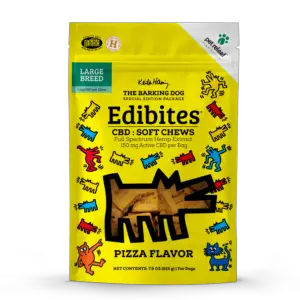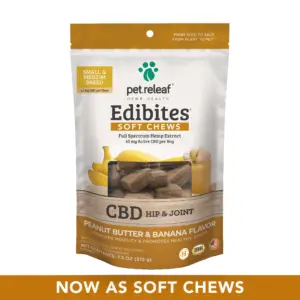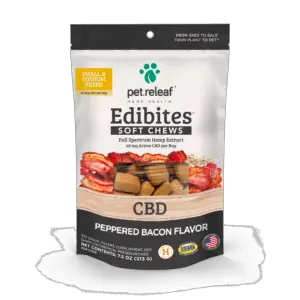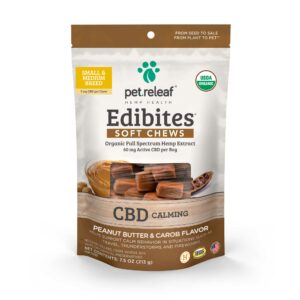
Key points
- A hypoallergenic diet is a diet comprised of a small number of ingredients that are less likely to cause an allergic reaction in dogs.
- Hypoallergenic diets provide many other benefits for canines besides eliminating (or at least minimizing) the risk of allergies. The benefits include lowered risk of heart disease and arthritis, reduced frequency of digestive problems, obesity, periodontal disease, blocked anal glands, and some kidney problems.
- Dog allergy symptoms include excessive scratching, dandruff, gastrointestinal upset such as diarrhea, vomiting, gas, bloating, ear infections, and loss of appetite.
- If you want your dog to follow a hypoallergenic diet, consult with your vet first because it may take some time to find a suitable hypoallergenic diet for your pet.
- Dog allergies are not the same as food intolerances. Allergies are congenital, meaning dogs are born with them, while intolerances develop over the pet’s life.
Hypoallergenic dog food is an emerging trend that is actively featured in the media. However, with a wide variety of different canine diets available today, it can be challenging for pet owners to understand how to choose food that will really benefit their pups. And if your dog is a picky eater or has an intolerance to many products, the diet issue becomes even more complicated. Dogs should have a well-balanced and healthy diet just like humans, so is it a good idea to switch your pet to hypoallergenic food? Keep reading this article to find out everything you need to know about hypoallergenic dog food.
Table of Contents
Hypoallergenic Dog Food: What Is It?
Hypoallergenic dog food is a safe alternative to conventional diets for dogs that suffer from allergies. It contains ingredients that are not likely to be found in traditional kibble. There isn’t an exact list of ingredients that should be present in hypoallergenic dog food, but the main rule is that it should be free of artificial colorings, preservatives, or other potentially harmful chemicals.
This type of diet remains similar to a natural canine diet and replicates pure and wholesome nutrition. It’s generally better for dogs to consume a high protein diet, but you should always consult a vet before making any radical changes in your canine’s diet. If your dog is allergic to protein sources such as pork, chicken, fish, soy, and turkey, consider switching to an insect-based protein source.
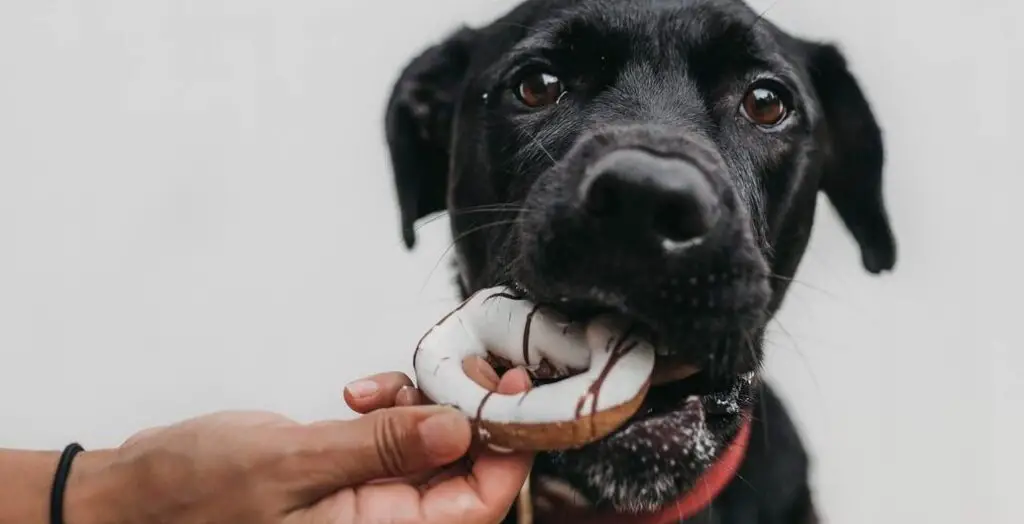
How Does Hypoallergenic Dog Food Work?
Hypoallergenic dog food eliminates potent allergens from your pup’s diet, which minimizes the risk of any allergy or food intolerance. The way this works is simple: in order for a dog to have an allergic response to a certain product, its body has to recognize that particular product as a harmful allergen that the pet’s body has been exposed to at some point in the past.
At the same time, hypoallergenic dog food contains unique products that your pup has never been exposed to before. Thus, the pet doesn’t have antibodies to these products, and its body can’t react by triggering an allergic reaction.
Benefits Of Hypoallergenic Dog Food
A diet based on hypoallergenic dog food can significantly lower the risks of many health conditions such as digestive problems, obesity, periodontal disease, and blocked anal glands. Hypoallergenic dog food can also decrease the risk of your pet developing heart disease, arthritis, and some kidney diseases. Its consumption may also improve your dog’s health in the long run and significantly lower the cost of medical care for your pet.

You will likely notice positive results soon as you start feeding your pup hypoallergenic dog food. However, in some cases, it might be better to stick to hypoallergenic dog food just to be safe and avoid exposing your pup to potential allergens because once your pet develops an allergy, it may be very difficult to treat the condition. You should also be aware that it may take some time for you to find an appropriate hypoallergenic diet for your dog.
That being said, you should not switch your pet to hypoallergenic food without talking to the dog’s vet first.
When Does A Dog Need Hypoallergenic Food?
It’s easy to spot an allergy but treating it may be tricky. If you suspect that your dog may be experiencing an allergic reaction, you should look for the following symptoms:
- Excessive scratching and itching;
- Gastrointestinal upset that manifests as diarrhea, vomiting, gas, bloating;
- Dry skin and a flat coat or, on the contrary – very oily skin and coat;
- Ear infection or constant presence of dirt and debris in the ears;
- Loss of appetite.
Other symptoms of canine food allergies may include swelling of the face, lips, eyelids, ears, or earflaps, sneezing, soreness, and hives. If your dog has any of these symptoms, consult your vet before starting any food trials or switching the pet to a hypoallergenic diet.
What To Do If My Dog Has Allergies?
 First of all, if you suspect that your pet has allergies, don’t make any decisions regarding your pet’s health without consulting a veterinarian beforehand. After all, your pet may be suffering from a completely different health issue that’s not related to allergies. A veterinarian will examine your pet and recommend a procedure for determining the cause of allergies.
First of all, if you suspect that your pet has allergies, don’t make any decisions regarding your pet’s health without consulting a veterinarian beforehand. After all, your pet may be suffering from a completely different health issue that’s not related to allergies. A veterinarian will examine your pet and recommend a procedure for determining the cause of allergies.
The best way to determine what’s causing your dog’s allergic reaction is to put the pet on a limited ingredient diet. While the vet can also carry out different tests such as saliva, hair, skin, or blood analysis, these are not as precise as elimination diets.
A limited ingredient diet contains foods that your dog hasn’t been exposed to before. These foods are usually formulated using an exotic protein source such as insects, bison, kangaroo, venison, alligator, herring, duck, etc., along with a safe carbohydrate source such as rice, oatmeal, or potato.
The Difference Between Food Allergies And Intolerances
The terms food allergy and intolerance are often used interchangeably. However, they are not the same thing. So what’s the difference?
To put it simply, food intolerance may arise at any life stage, while allergies are something that your dog has since puppyhood. So if you see your dog suddenly rejecting the food it usually enjoys, it means that your pup has developed an intolerance to a particular product.
How Does A Hypoallergenic Diet For Dogs Work?
If your dog was diagnosed with allergies, don’t rush into changing its diet since it may result in a stomach upset. Instead, always consult your vet about any changes you’re planning to make in your pet’s feeding routine.
If your vet recommends a hypoallergenic diet for your pup, make sure you follow all the instructions, including sticking to set feeding times and portion sizes because they depend specifically on the product.
The diet may help eliminate your canine’s allergic reactions, but it won’t solve all your dog’s health issues instantly. You should be patient and consistent with a hypoallergenic diet and note even the slightest positive changes.
Initially, your dog will go through a food trial stage which will last for about three months. During that time, it will be your responsibility to ensure that your dog doesn’t eat anything that’s not on the list of appropriate ingredients. You may also need to eliminate artificially flavored medication, treats, and supplements from the pet’s diet. After three months, you can start gradually including new foods in your canine’s diet, adding them one at a time. Closely watch the pet’s health condition and behavior after introducing each new ingredient, as it will help you identify what causes allergic reactions in your pet.
Hypoallergenic diets are suitable not just for dogs who suffer from allergies. Even if the vet concludes that your pet doesn’t have food allergies, you can still stick to hypoallergenic food if you see that your pup is enjoying its new regimen. Remember, the main goal is to find a diet that provides all the necessary ingredients and nutrients to keep your dog healthy and happy.
Insect-Based Diet For Dogs With Allergies
Dogs are carnivores by nature, and protein should make up the majority of their diets. But what to do if your pup is allergic to conventional meats? That’s when insect-based protein comes in. It has been scientifically proven that insect protein provides excellent nutritional benefits for animals that consume it because insects are rich in amino acids, minerals, and vitamins. Additionally, insect-based protein doesn’t contain any hormones or antibiotics, unlike most conventional protein sources. Plus, insect-based food is eco-friendly and sustainable, which means it’s great for our pets and our planet.
Can Puppies Have Hypoallergenic Food?
While the answer to this question depends on the breed, choosing a proper diet for a puppy is tricky. Most puppies are good with regular wet kibble, while others have strict dietary restrictions that the owners have to take into account. For instance, some breeds should avoid consuming too much calcium, phosphorus, vitamin D, and fat in puppyhood since these components promote rapid growth, which can result in orthopedic disease.
If you think that your puppy will benefit from hypoallergenic dog food, you should consult your vet to choose a proper regimen that will promote your dog’s well-being.
Hypoallergenic Diet VS Grain-Free Diet
A grain-free diet is often confused with hypoallergenic and limited ingredient diets, so we’ve decided to clear things up and explain the differences between them.
Grains are a common allergen for dogs, but some hypoallergenic diets still use them as a carbohydrate source. A grain-free diet, on the other hand, eliminates all grains from your dog’s food. However, it includes other ingredients that may cause an allergic reaction in your pet. Thus, a grain-free diet can’t be considered hypoallergenic.
Myths About Hypoallergenic Diets For Dogs
Since hypoallergenic diets raise many questions with pet owners, it’s natural that a lot of myths have accumulated around them over the years.
For instance, many pet owners believe that a hypoallergenic diet is a miracle that will solve all of their dog’s problems, but in fact, it’s just a safer dietary regimen for your dog. In addition, switching to a hypoallergenic diet eliminates only about 10% of canine allergies because other factors also contribute to the condition.
Another common misconception is that a hypoallergenic diet is the only type of diet dogs should follow, and that dog owners should avoid all other products in their pets’ food. This strict regimen is essential to follow when you’re trying to determine the cause of your dog’s allergies, but other than that, it’s likely safe to feed your dog other products that it enjoys.
FAQ
What can my dog eat on a hypoallergenic diet?
A hypoallergenic diet for dogs usually contains one exotic protein source such as insect protein, venison, salmon, or duck and one unusual carbohydrate source such as rice or potato.
Can hypoallergenic dogs eat rice?
Yes, rice is generally safe for dogs and rarely causes an allergic reaction in dogs.
Should I give my dog hypoallergenic food?
Yes, hypoallergenic dog food offers many health benefits for canines. But don’t make any diet changes without consulting your vet.
Is hypoallergenic the same as grain-free?
No, a hypoallergenic diet may contain grains, and a grain-free diet may contain other ingredients that are not classified as hypoallergenic.

